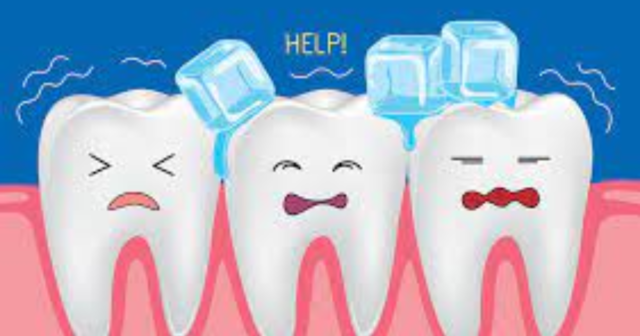When you consume hot, cold, sweet, and sour, food and drinks, or even when you breathe cold and wet air, your teeth may become sensitive. Pain may be quick, and intense, and extend deep into the nerve terminals of the tooth. The best Dentist Indore provides the best care and treatment of the teeth through Fluoride, desensitizing toothpaste, and dental bonding is all treatments.
What is Teeth Sensitivity?
When the layer of your teeth underneath the enamel, is uncovered, dental pain generally occurs as per the best Dentist Indore. Erosion (wear and tear) and gum recession may be responsible for this (when your gum tissue pulls away from the teeth, exposing the roots.
Teeth roots include hundreds of small tubules that lead to the interior of the tooth but aren’t protected by strong enamel (the pulp). The nerve in your tooth is pushed by food items like hot, cold, or sweet food, and these cause discomfort in the teeth.
Other problems, such as cavities, gum disease, or a cracked tooth, might also be a sign of dental sensitivity.


What are the Causes of Tooth Sensitivity?
The best Dentist Indore discusses the factors which affect tooth sensitivity: –
Brushing too hard: Over time, excessive brushing or the use of a toothbrush with hard bristles can wear down the enamel and disclose the pulp. It could also result in gum recession (when your gum tissue pulls away from your teeth).
Gum recession: Some individuals have thin gum tissue. Periodontal disease also causes gum recession in other persons. Gum recession occurs when the gum line begins to fade from the teeth and expose the roots.
Gum disease: Sensitive gum tissue can result from inflamed and painful gum tissue because the loss of supporting muscles exposes the root surface, which is directly connected to the tooth’s nerve.
Cracked teeth: Broken or lost teeth may fill with plaque bacteria and reach the pulp, resulting in discomfort.
Products for teeth whitening: These items significantly increase tooth sensitivity. Discuss teeth whitening for sensitive teeth with the best Dentist Indore if you wish to enhance your smile.
Acidic foods: Consuming foods regularly can lead to enamel erosion. Examples of such foods are citrus fruits, tomatoes, pickles, and tea.
Recent dental procedures: Fillings, teeth cleanings, and dental restoration implantation can all cause painful teeth in patients. Dental procedure-related sensitivity is transient and often goes away in four to six weeks.


Treatment of Tooth Sensitivity – Best Dentist Indore
The best Dentist Indore can employ a variety of techniques to reduce your discomfort once the issue has been identified, including:
- Toothpaste for teeth that are sensitive
- The fluoride gel
- Coverings for exposed roots
- You may get desensitizing paste for sealants from your dentist (not to be used with a toothbrush).
- If you grind your teeth, wear a mouthguard.
- A root canal may be recommended by the best Dentist Indore if your condition is serious.
Additionally, it’s critical to avoid dental care due to tooth pain. Ignoring your teeth might make things worse. Twice-daily brushing and flossing will maintain your smile healthy and also relieve you from pain. Additionally, go to the dentist twice a year for a checkup.
Can sensitive tooth pain go away?
Yes. Teeth sensitivity can sometimes go away on its own, especially if it is caused by a filling or root canal that was just completed. Consult the best Dentist Indore if your teeth are sensitive and the problem still exists. In these situations, therapy may be necessary to address the problem.
How can sensitive tooth pain be relieved?
To minimize the risk of dental sensitivity based on typical wear and tear:
- Use of Soft Toothbrush: – Use a toothbrush with soft bristles to avoid abrading the surface of your teeth and irritating your gums.
- Watch your diet: – Acidic foods can progressively destroy tooth enamel with repeated ingestion, exposing dentin. Additionally, they could increase sensitivity and trigger pain.
- Avoid Teeth Grinding: – Use a mouth guard at night if you grind or clench your teeth to prevent this from happening.
- Visit the dentist frequently: – Regularly see a professional for cleanings, examinations, and fluoride treatments.
